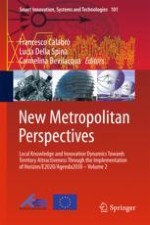2019 | OriginalPaper | Buchkapitel
Intergenerational Discounting in the Economic Evaluation of Projects
verfasst von : Antonio Nesticò, Gabriella Maselli
Erschienen in: New Metropolitan Perspectives
Aktivieren Sie unsere intelligente Suche, um passende Fachinhalte oder Patente zu finden.
Wählen Sie Textabschnitte aus um mit Künstlicher Intelligenz passenden Patente zu finden. powered by
Markieren Sie Textabschnitte, um KI-gestützt weitere passende Inhalte zu finden. powered by
